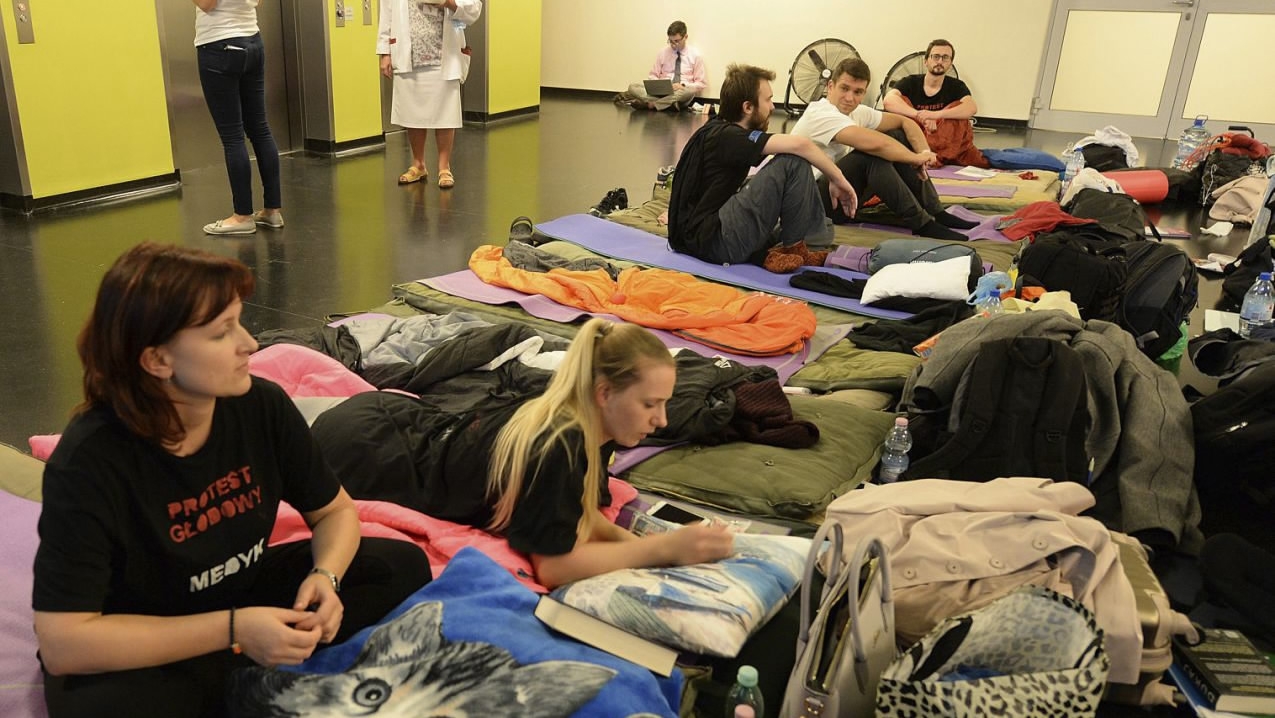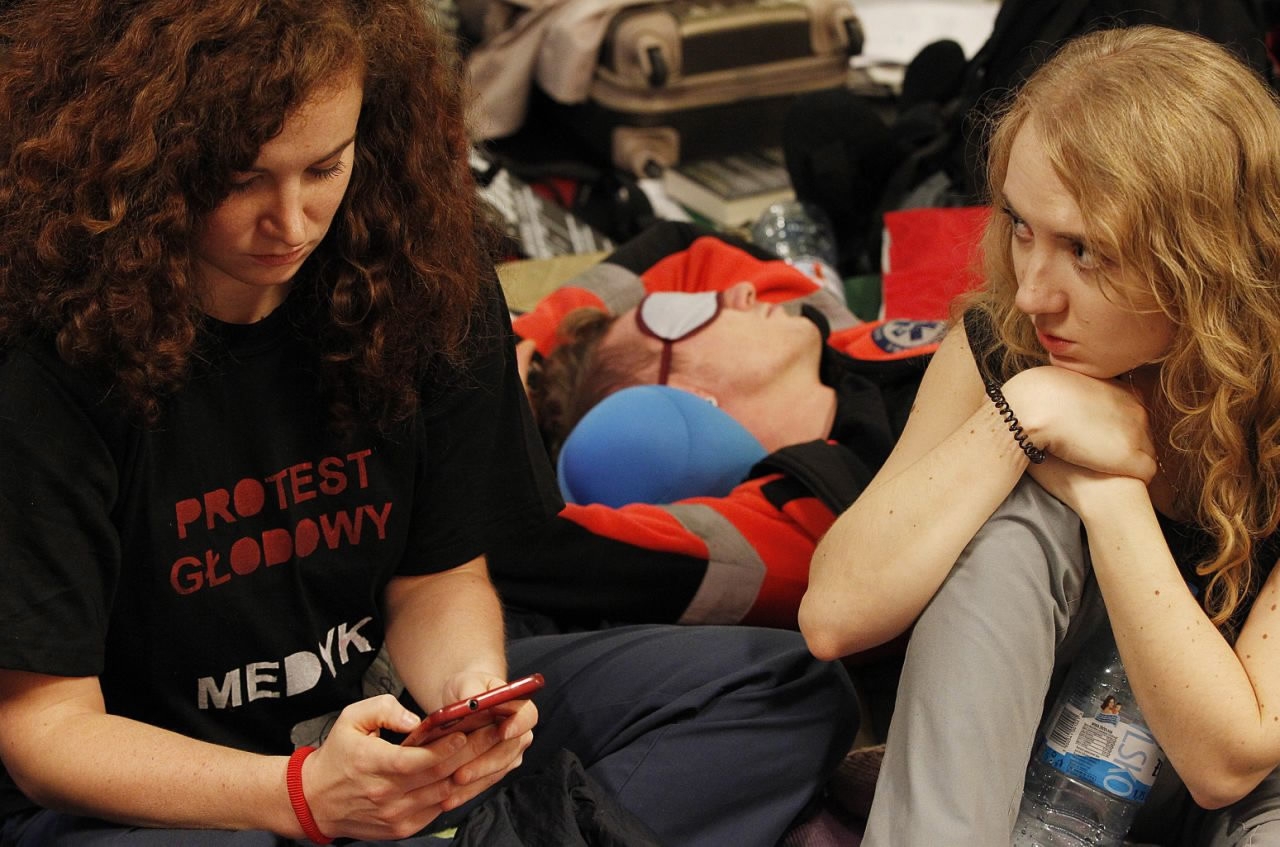
World
17:05, 28-Oct-2017
Striking Polish doctors seek health sector reform
CGTN

Young Polish doctors have been on hunger strike for about a month, demanding a raise in public healthcare spending and salaries.
Clad in black shirts bearing the legend "hunger strike," they have been taking turns fasting while camping out in the hallway of a children's hospital in Warsaw since October 2.
The conservative Law and Justice (PiS) party government has already introduced some reforms since coming to power in 2015, including extending public access to hospital care and creating a hospital network meant to improve patient follow-up.
But the striking doctors want the government to raise public healthcare spending from the current 4.7 percent of gross domestic product (GDP) to 6.8 percent within three years.
They insist that politics play no role in their initiative and that they are not just looking for higher salaries but also want an increase in healthcare spending across the board.
"We need to reduce queues and improve access to healthcare," said one strike leader, Lukasz Jankowski.
The wait to see a doctor in Poland can sometimes take months or even a year or more for those who do not qualify for urgent care.
"We need to move forward on digitization, which is at a standstill, to create a central register of medical services as well as to have a record of patient history," Jankowski told AFP.
A Facebook page devoted to the cause has attracted 37,000 followers. The strikers have both the backing of patients and the body representing the profession, the Chamber of Physicians and Dentists (NRL).
"If junior doctors are receiving lower salaries than supermarket cashiers, then there's a problem," said NRL president Maciej Hamankiewicz.

Young doctors holding a hunger strike at the Medial University's Children's Hospital in Warsaw, Poland, Thursday, Oct. 19, 2017. /AP Photo
Young doctors holding a hunger strike at the Medial University's Children's Hospital in Warsaw, Poland, Thursday, Oct. 19, 2017. /AP Photo
"They work between 300 and 400 hours a month, often in a state of chronic fatigue." According to Jankowski, 82 people are now fasting in eight cities.
Too little, too late
The government is listening. After meeting with the protesters, Health Minister Konstanty Radziwill got a bill passed to raise healthcare spending to 6 percent of GDP in 2025. But for the young doctors in training towards their specialization, it is too little, too late.
They may be resigned to accepting the six percent level, but want it reached in 2021. Radziwill, who himself is a doctor by training, has said the earlier timeline would be "impossible on account of state finances."
"We're under pressure to reach a compromise. The hunger strike has almost run its course, a general strike is planned but runs the risk of being poorly received by the public," Jankowski said.
"We'd be happy if the government expressed its willingness to work towards reaching the 6 percent of GDP level earlier." Even those not on strike agree there is a problem.
"Sometimes we run out of bandages for IV infusions... At times we even run out of medicine. We put in orders on time but don't get the deliveries because the previous bill wasn't settled," said Anna Borkowska, a young Warsaw doctor who is training to become an anesthetist. She "wholeheartedly backs" her colleagues' protest.
"If we're paid so little, maybe it's in order to force us to take on three jobs... Without that, a third of the country's hospitals would shutter." There is also the painful problem of brain drain.
Young doctors are leaving, mainly because of insufficient pay. The basic monthly salary for trainee doctors is 500 to 700 euros (580 to 810 US dollars), which they can supplement a little by taking on night shifts. According to Hamankiewicz, around 25,000 Polish doctors currently work abroad, including 13,000 in other EU states.
Source(s): AFP

SITEMAP
Copyright © 2018 CGTN. Beijing ICP prepared NO.16065310-3
Copyright © 2018 CGTN. Beijing ICP prepared NO.16065310-3